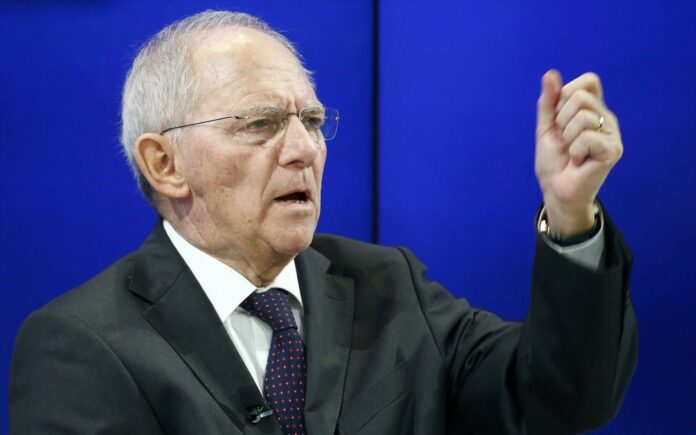By T. Tsiros & N. Bellos
German Finance Minister Wolfgang Schaeuble on Thursday more-or-less ended continued heightened speculation of a new Greek adjustment program or even a continuation of the current bailout program for Athens, in case the IMF ends its participation.
Schaeuble, who’s considered the “barometer” of Berlin’s intentions in the Greek program and a leading voice among European creditors, was quoted by Bloomberg as saying that the Bundestag will find it very hard to approve of a new program for Greece if the current one ends with an IMF exit.
“The Greek program, since the beginning of 2010, is based on the IMF,” he said, adding that if the Fund declines to participate then this shows that Greece is not meeting its obligations.
“The program will end because the conditions of the program’s existence, its foundation, will have been abolished … I would advise against trying to acquire the approval of the German Bundestag,” he underlined.
In wake of the latest high-profile statements by the powerful German FinMin, Euro zone officials later issued similar warnings towards the leftist Greek government.
“No participation by the IMF in the program means a new program, something that is difficult and will take time, because it requires ratification by national parliaments,” EZ officials also warned.
Just as ominously, the latest signs emanating from European creditors point to the possibility of a new “ultimatum” being sent to the Tsipras coalition government (leftist SYRIZA and its tiny junior partner, the rightist-populist ANEL party) before this month’s Jan. 26 Eurogroup meeting.
In a bid to deal with what’s expected to be a more unified front amongst creditors (Euro zone, IMF and ECB) in the coming period, Greek Finance Minister Euclid Tsakalotos is reportedly ready to present his government’s “honorable compromise” ahead of the Eurogroup meeting.
The proposal, which is still the product of speculation at present, will attempt to please all sides, i.e. no legislated measures now for austerity measures after 2019, something that the now wholly unpopular Tsipras government — according to opinion polls — wants to avoid at all costs.
However, the German side and other European creditors will be guaranteed high fiscal targets for Greece after 2018, a standing demand.
In terms of the IMF and its demands, namely, additional guarantees that what it deems as unrealistic fiscal targets (3.5 percent primary budget surpluses after 2018), will be met.














